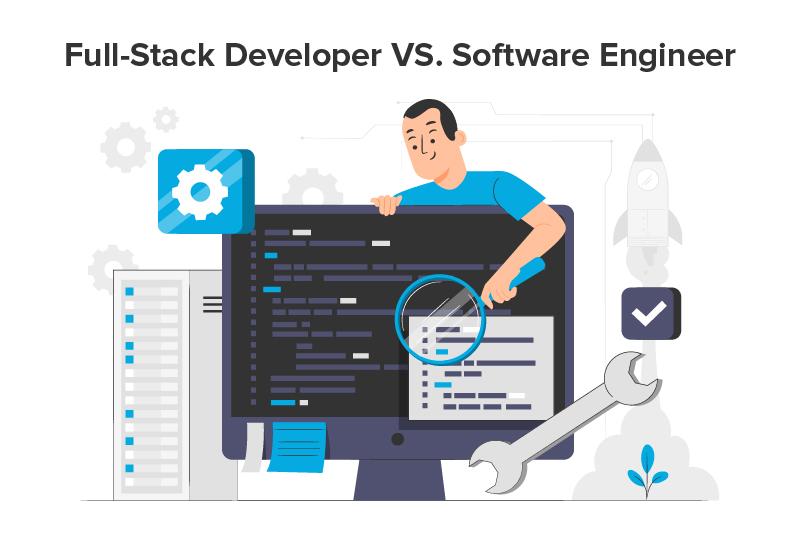Devoted Developers vs. In-House Teams: Which Is Right for You?
The choice in between using dedicated developers and keeping an in-house team is a significant one that can influence the trajectory of your projects and general company approach. Devoted designers provide a level of versatility and customized experience that can be advantageous for details, temporary campaigns. Alternatively, in-house teams contribute to a natural company culture and a nuanced understanding of long-lasting objectives. By checking out vital variables such as spending plan, project range, and preferred control, you can much better identify which technique straightens with your organizational demands. However, the ramifications of this selection expand beyond immediate end results-- think about the broader effect on your business landscape.
Comprehending Devoted Programmers
The expanding demand for specialized abilities in the tech sector has caused the appearance of devoted developers as a sensible option for numerous organizations. These experts are generally gotten on a task basis, enabling companies to utilize certain proficiency without the lasting dedication linked with full time hires. Dedicated programmers are typically embedded within a customer's group, supplying flexibility and scalability to satisfy job demands.
This model enables companies to access a worldwide talent swimming pool, which is particularly useful in a quickly evolving technological landscape. Committed programmers can be sourced from various geographical locations, guaranteeing that business can locate the best ability set at affordable rates. They usually bring a riches of experience and understanding, having actually worked with diverse projects throughout different industries.
Additionally, devoted programmers can concentrate exclusively on the tasks available, boosting productivity and effectiveness. They are furnished to incorporate effortlessly right into existing operations, collaborating carefully with in-house teams to achieve project objectives. This technique not just lowers the burden of employment and training yet likewise allows organizations to stay nimble, adapting quickly to transforming market needs and technical developments.
Benefits of In-House Teams

Additionally, internal groups have a tendency to have a deeper understanding of the company's objective, values, and goals. This alignment can enhance staff member involvement and motivation, as employee really feel much more connected to their work and the company's success. Furthermore, having a specialized in-house group enables better placement of goals and techniques, as these participants are continually focused on the business's top priorities.
In-house groups additionally promote quicker decision-making processes, as they can respond much more rapidly to difficulties and adjustments. The recognized connections and knowledge with firm procedures permit for streamlined workflows and lowered miscommunication. Ultimately, the mix of a cohesive society, alignment with business goals, and effective interaction makes in-house groups an important possession for several organizations, particularly those wanting to cultivate long-term growth and development.
Price Factors To Consider
When examining cost considerations, both devoted programmers and in-house teams present distinct financial implications for internet and web designing companies. Involving specialized designers generally includes a pay-per-project or hourly price version, which can be cost-effective for businesses with changing job demands. This approach enables adaptability in scaling resources up or down, ensuring that companies only pay for the services they need.
On the other hand, in-house teams entail dealt with costs, including salaries, advantages, and overhead expenditures such as workplace room and tools. While this version offers higher control and prompt schedule of sources, it may result in higher long-term expenditures, particularly if the workload does not warrant a full-time staff.
Moreover, firms must consider the hidden prices connected with employment and training of in-house staff members, which can further stress spending plans. In many cases, the moment and sources spent on managing an in-house group can interfere with the company's core company objectives.

Project Monitoring and Versatility
Project management and adaptability are critical variables that affect the selection in between in-house groups and specialized programmers. Devoted developers commonly supply a high degree of adaptability, enabling organizations to scale sources up or down based upon job demands. This dexterity can be particularly advantageous for services experiencing fluctuating workloads or those seeking to introduce rapidly. Devoted groups often have developed procedures for handling tasks efficiently, leveraging certain approaches like Agile or Scrum, which assist in iterative progression and adaptability.

Eventually, the option in between in-house teams and devoted developers depends upon the preferred degree of adaptability and the details task monitoring demands. Business need to examine their operational characteristics, project complexity, and resource schedule to identify which option straightens finest with their tactical purposes.
Making the Right Option
Choosing the best growth approach-- devoted developers or internal groups-- requires a careful evaluation of different variables that line up with a business's calculated objectives. Alternatively, in-house teams can offer much better continuity and assimilation with existing workers.
Following, examine your budget plan. Committed designers usually present an economical service for short-term jobs, while in-house groups may incur higher long-lasting costs as a result of wages, benefits, and expenses costs. Evaluate the degree of control and collaboration desired; in-house teams normally foster more python software engineer powerful interaction and alignment with firm society.
In addition, take into consideration the moment framework. If prompt outcomes are essential, devoted designers can be onboarded rapidly, whereas constructing an internal group requires time for employment and training. Weigh the lasting vision of your organization. If continual advancement is vital, buying an in-house team may yield better returns gradually. Inevitably, the decision depends upon a thorough evaluation of these aspects, making sure alignment with your firm's overall objectives and operational demands.
Final Thought
In final thought, the decision in between devoted developers and in-house groups hinges on job needs and business objectives. Alternatively, in-house groups cultivate a cohesive society and deeper alignment with long-term objectives.
The decision in between utilizing committed designers and keeping an in-house team is a significant one that can impact the trajectory of your tasks and overall organization technique.Task monitoring and adaptability are important factors that influence the choice in between internal groups and dedicated programmers. software development partner.In contrast, internal teams may stand out in preserving a regular project administration framework due to their knowledge with the organization's culture and long-term goals. Devoted programmers frequently present a cost-efficient solution for short-term projects, while in-house teams may sustain greater long-term expenses due to salaries, advantages, and expenses prices.In final thought, the decision between in-house groups and specialized developers hinges on job requirements and business purposes